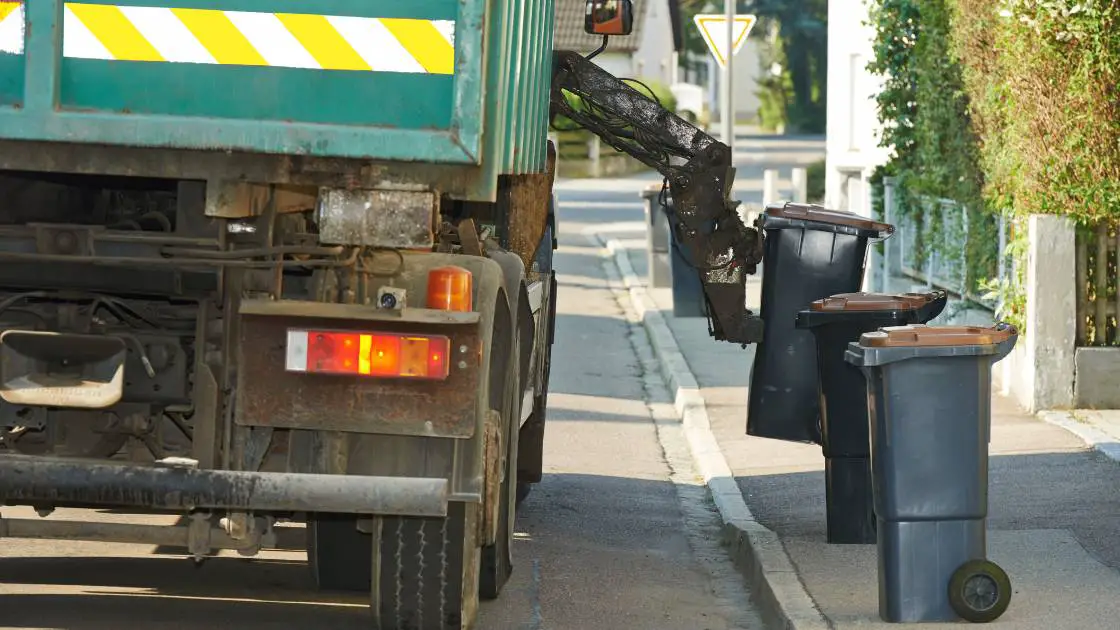If you are a tenant and wondering what your obligations are regarding garbage disposal, you have come to the right place.
In this article, I am going to cover some of the key rules governing how garbage should be disposed by renters and how you can avoid getting in trouble by your landlord or applicable governmental authorities in connection with your trash.
If you don’t have the time to read through it all, here’s a short answer to the question:
Tenants are generally responsible for keeping their dwelling in a clean and sanitary condition and this includes promptly removing trash, garbage and waste in sealed containers. Specific requirements may vary, so tenants should check their lease as well as state and local laws to understand the full scope of rules applicable to them.
Ok, we’ve got a lot to cover, so let’s get into it.
The information contained in this post is for informational purposes only. It is not legal advice. You should seek the advice of a qualified legal professional before making any decisions relating to the topics covered by this article.
We may earn commissions from products and services that are purchased or recommended through our website as part of our affiliate partnerships. As an Amazon affiliate, we may earn from qualifying purchases.
General Rules For Tenants Regarding Garbage Disposal
As mentioned above, tenants are generally expected to keep their premises clean and sanitary. So if you are not disposing of your trash and other waste in a timely manner, you could be creating a hazardous environment, not just for yourself, but for others.
Garbage that is not disposed of promptly can rot and cause a variety of serious issues, including attracting pests (which can lead to the spread of disease), and promoting the growth of mold and bacteria (which also can lead to illness).
Let’s not forget the smell!
If you are living in an apartment, this can also create a serious issue for your neighbors. No one wants to come home to a place that reeks of a neighbor’s rotting garbage.
So keep your place tidy and remove your garbage on a regular basis. Obviously, you should not just toss out garbage and let it scatter in the wind- it should be collected in a garbage bag or garbage container and left in the appropriate trash pick-up area.
Check Your Lease For Specific Requirements
Often your lease will spell out more specific rules around the disposal of garbage. This may include the manner of removing your garbage, where it should be placed, who is responsible for its pick-up costs, and so on.
It goes without saying that you should comply with these rules because your lease is a binding contract and your landlord can cite you for violation of the lease if you don’t comply.
Not only that, a lease violation may result in eviction (especially if it is persistent and uncorrected), so be mindful of your obligations under the lease in general.
Check State and Local Laws Relating to Garbage Removal
States and local authorities may have different rules around garbage disposal, so you should review them and make sure you are complying.
These could include rules around segregation of various types of garbage (i.e., recyclable materials, hazardous materials, liquid waste, bulk items, etc.). There may also be rules around the types of receptables that are acceptable (i.e., leak proof, tight fitting lids, heavy duty garbage bag, etc.)
New York City, for example, has specific regulations governing all of these areas. Source
In California, they recently introduced a rule requiring businesses and residents to recycle organic materials, such as food waste, food soiled paper and yard debris. Source
Bottom line: You won’t know what your state and local governments actually require unless you check. So it makes sense to do so before you get a citation for failing to comply with the law.
If you prefer to have a lawyer assist you, I would try JustAnswer. They boast access to thousands of highly-rated, verified real estate lawyers whom you can connect with via their unlimited chat service.
By clicking the banner below, you can get a one week trial membership for only $5, which you can cancel at any time.

If You’re Part of a HOA, It Will Have Its Own Rules
Some tenants live in a community that is governed by a Home Owner’s Association or Condo Association.
In many cases, these communities will have designated a garbage area (with dedicated dumpsters). The HOA will likely have rules governing the disposal of trash, including segregation and other requirements that we covered earlier.
HOAs are notorious for enforcing their rules and penalizing violators, so you definitely want to make sure you follow their rules. In many cases, they have closed circuit TVs recording the garbage area, so they can see who is violating HOA rules.
Bulk Items, Hazardous Substances and Non-Standard Waste
If you have large items (like furniture, appliances, etc.), hazardous substances (like paint, chemicals, petroleum products, etc.) or other non-standard items that need disposal, you will need to dispose of them properly.
What is proper disposal will depend on your situation. Again, you should check your lease, state and local rules, and HOA regulations (if applicable).
If you are lucky, it may simply be a matter of segregating and properly packaging the items for pickup. But a lot of times, your trash collection service may charge extra for these types of pick-up. Or you may need to drop these types of items off at your nearest waste collection facility, which I admit can be a hassle.
But it’s better than getting citation and having to pay a fat bill from your local government for improperly disposing of your waste.
Conclusion
So there you have it – a comprehensive discussion of rules applicable to tenants regarding garbage disposal and tips on how to comply. Hope this has been and happy renting!

